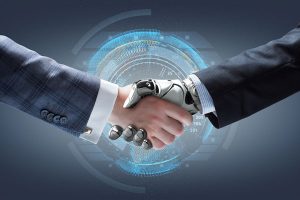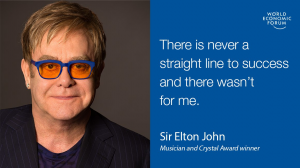
I was delighted to be asked by the co-chairs of LGBT TNON (‘The Network of Networks’) to lead a session entitled “Should the LGBT Community be fearful of Artificial Intelligence (AI)?” Attended by well over fifty LGBT Network Leaders from businesses and organisations from across the City, the topic proved to be popular in pulling in the crowd and raising curiosity about the potential impact and consequences of AI.
I believe AI can play a positive and crucial role in helping people unearth new strategies to solve complex social problems and make more efficient use of our natural resources. It does mean, however, as a society, we need to work out how we can fairly deploy, govern and control these systems so that they will lead to improving social impact, drive inclusion and not exclusion, and deliver better societal outcomes.
For AI to be developed in a way that will benefit society and augment human life, all of us, not just the computer programmers, need to be heard to ensure fairness, trust, equality and transparency is embedded in the design, development and use of the technology. We’re not talking about whether the AI technologies that are not ethical or unethical per se. It’s the use that businesses make of AI which is at stake here, and which should never undermine human ethical values.
Therefore, hardwiring diversity into the heart of AI is a must-have, not a nice-to-have. For AI to be free from bias and prejudice, it is critical that the machine learning algorithms that drive AI decision-making are trained on diverse sets of data and are built on the human ethical values of openness (to optimise levels of transparency), fairness, accountability and responsibility. Organisations need to set appropriate ethical governance frameworks and standards to determine clearly their expectations of the AI system, and agree what is an acceptable ethical standard is for them.
It is only by purposely building in inclusive and trustworthy attributes such as openness, integrity and responsibility will AI achieve its potential to benefit all of humanity and enable us to the best that we can be, not disable us. This calls for a mind-shift from the researchers and developers towards a goal of improving transparency as well as performance, and towards building trust in the system through enabling openness of data and the algorithms that use it.
Back to the exam question – should the LGBT community be fearful of AI? My encouragement is to not be fearful. Instead let’s be courageous and brave. Let’s be clear about what we all stand for and work together to optimise the good that AI can bring to fight the things that threaten our world such as global poverty, environmental damage and disease, and enable it to do the right thing for us as human beings.
The leading technology companies, global business leaders and world politicians all had something to say about AI at the recent World Economic Forum in Davos and I could have ended with any one of a number of high profile statements reported in the media. But instead, I ended on a note of inspiration from Elton John, someone who is a bit different and who was recognised at Davos for his achievements. His words below could well apply to the journey we are on in our quest to develop ethical AI and should give us hope that all of us can, should and will fight to drive for AI and machine-learning to deliver a positive outcome for all of humanity:



